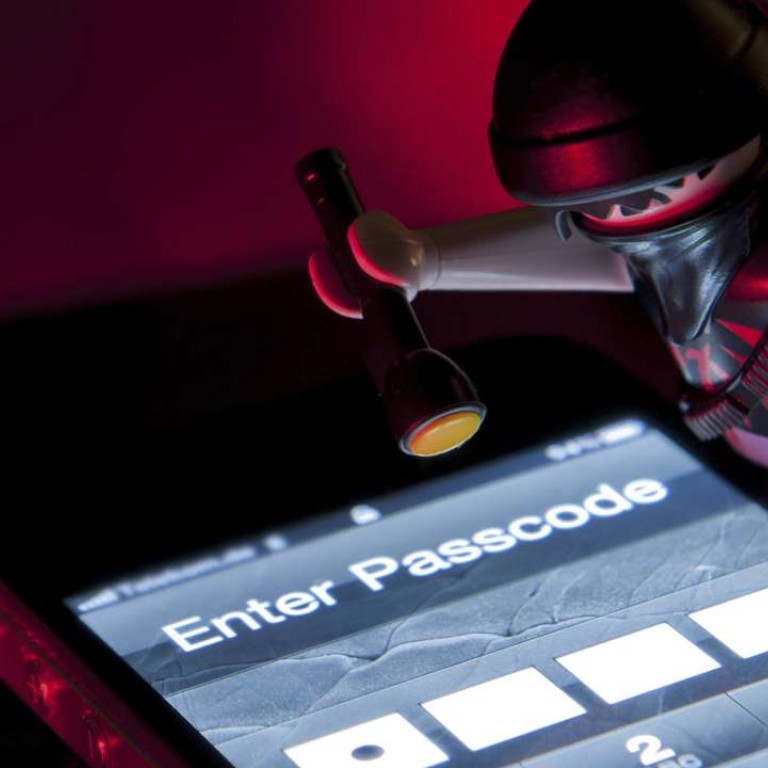
Growth in demand for encrypted apps no cause for alarm, say tech experts
Governments around the world blame encryption for weakening security but it’s essential to the functioning of the modern world
“Privacy is the norm and we strongly believe that it should be a part of everyone’s digital life, just like you would expect in the physical world. We all use safeguards like closing doors or lowering your voice to protect our privacy, which are not seen as secretive actions,” he says.
“In the same way, at Wire we don’t think of messaging apps using end-to-end encryption as secretive, it’s just emphasising that your communications are personal and private.”
Snowden calls for boycott of Google’s newest messaging app over privacy settings
There’s also a growing awareness of online privacy, of companies mining people’s data to use for targeted advertising or to sell on to third parties, but the real problem is malicious hackers who target company servers filled with user data.
“Awareness is often the driving force behind innovation, and the same can be said for encrypted messages,” says Duric.
5 ‘secured smartphones’ that protect sensitive data and stop cyberattacks
“Now that people understand how much of their communications can be scanned or intercepted, they’re choosing forms of communication that prevent this and as a result, encrypted services are on the rise.”

Apple iPhones by default use encryption on iMessage and FaceTime services, and end-to-end encrypted messaging apps are mushrooming.
End-to-end encryption means that anyone intercepting messages, a conversation or any other kind of data sees only random, useless nonsense; only the participants in the conversation have the security keys to decipher the data on the phones that are communicating.
That key is not known even to the company in question, whether it be Apple, Blackberry (with its BlackBerry Messenger), WhatsApp, Google (on its upcoming Allo messaging platform), or a ton of third-party apps like Wire, Telegram, Signal and surespot.
All now offer secure messaging that cannot be hacked (though note the absence of WeChat, which doesn’t offer any encryption).
Terrorists also benefit from things such as public transport, aeroplanes and the internet, yet we don’t seem to be contemplating banning any of those
But governments hate encryption. Why? In short: terrorism – at least, that’s what they say.
Apple has actively and loudly defended end-to-end encryption despite the US government wanting to be able to access the data of anyone whenever they want, exactly as the NSA did.
“Encryption can definitely help all sorts of criminals, including terrorists, evade detection,” says Fred Ghahramani, chief executive and co-founder of Just10, an advertisement-free social network.
“Terrorists also benefit from things such as public transport, aeroplanes and the internet, yet we don’t seem to be contemplating banning any of those,” he adds, insisting that encryption shouldn’t be a “dirty word”.

As an example, he points to the political reaction to the Bataclan attacks in Paris in November last year, when French politicians suggested that the encryption of messages was hampering efforts to catch the terrorists.
It turned out that not only had they used unencrypted SMS texts, but that the mass-surveillance laws passed in the aftermath of the Charlie Hebdo attacks in Paris in January 2015 had been completely ineffective.
“Not only was encryption unfairly demonised, but the bulk data collection and mass surveillance programme that promised to keep everyone safe didn’t work,” says Ghahramani.
“Most of the time it’s because legislators don’t fully understand the full benefits of encryption, and how many parts of their lives are affected by it.”
Encryption is far more than a fleeting trend in new smartphones and messaging apps. Without encryption, it would be impossible to use a credit card, get cash from an ATM, make a phone call or even use any kind of cloud service like Dropbox, Google Drive or Apple’s iCloud.
That encryption is the basis for modern life and business is precisely why Apple and others are resisting governments’ attempts to open up a “revolving back door” for legislators, because once they make devices and apps vulnerable in this way, malicious hackers will go to work.
Besides, the moment governments have the keys to the back door of popular messaging services and mobile devices, terrorists and wrong-doers will desert it in favour of something else entirely.
If governments want to foster the digital economy and make us all safer from malicious hacking, so the argument goes, they should encourage much more encryption, not demonise it.
While the politicians play catch-up with technology, the secure smartphone is a great place to start.

